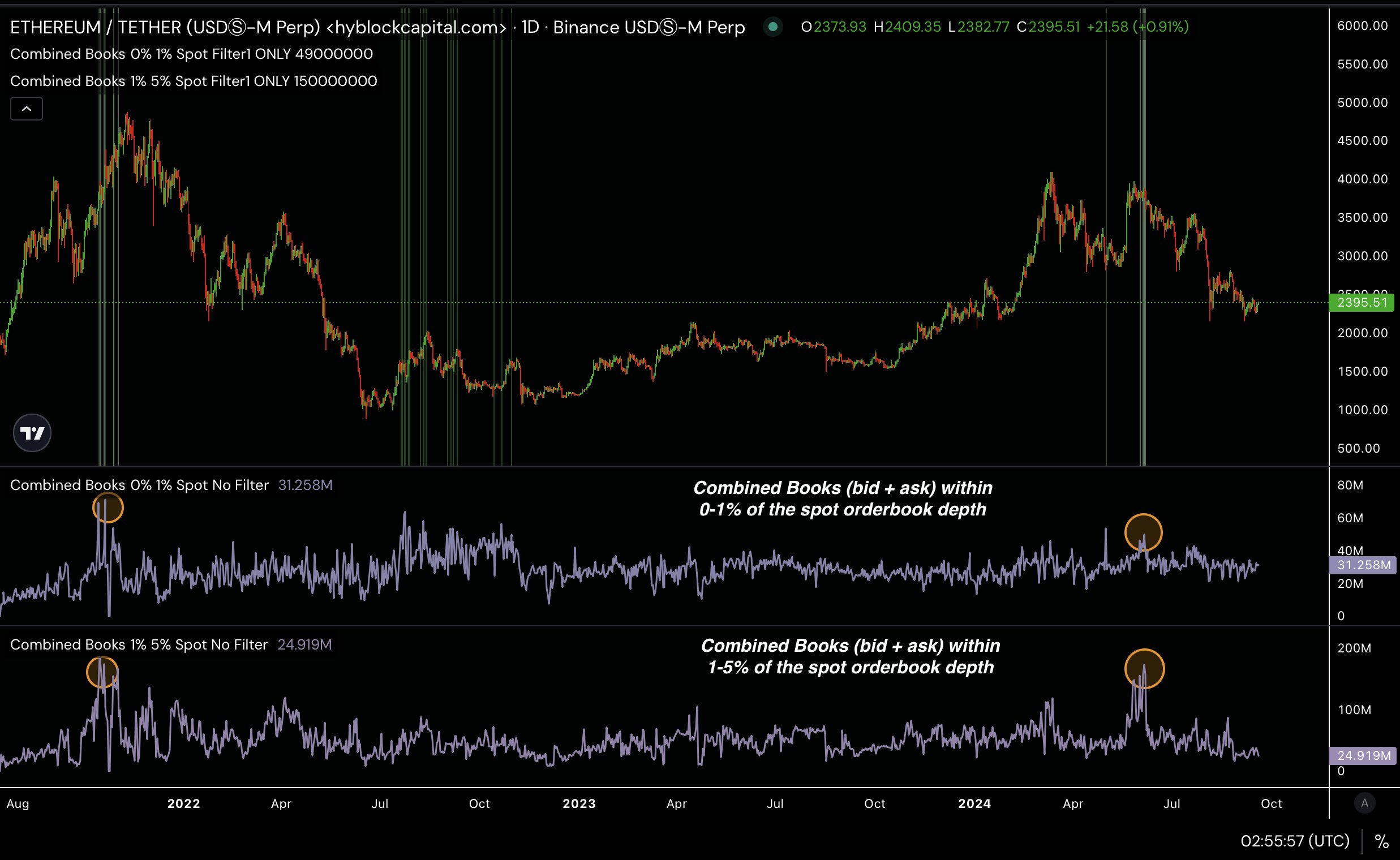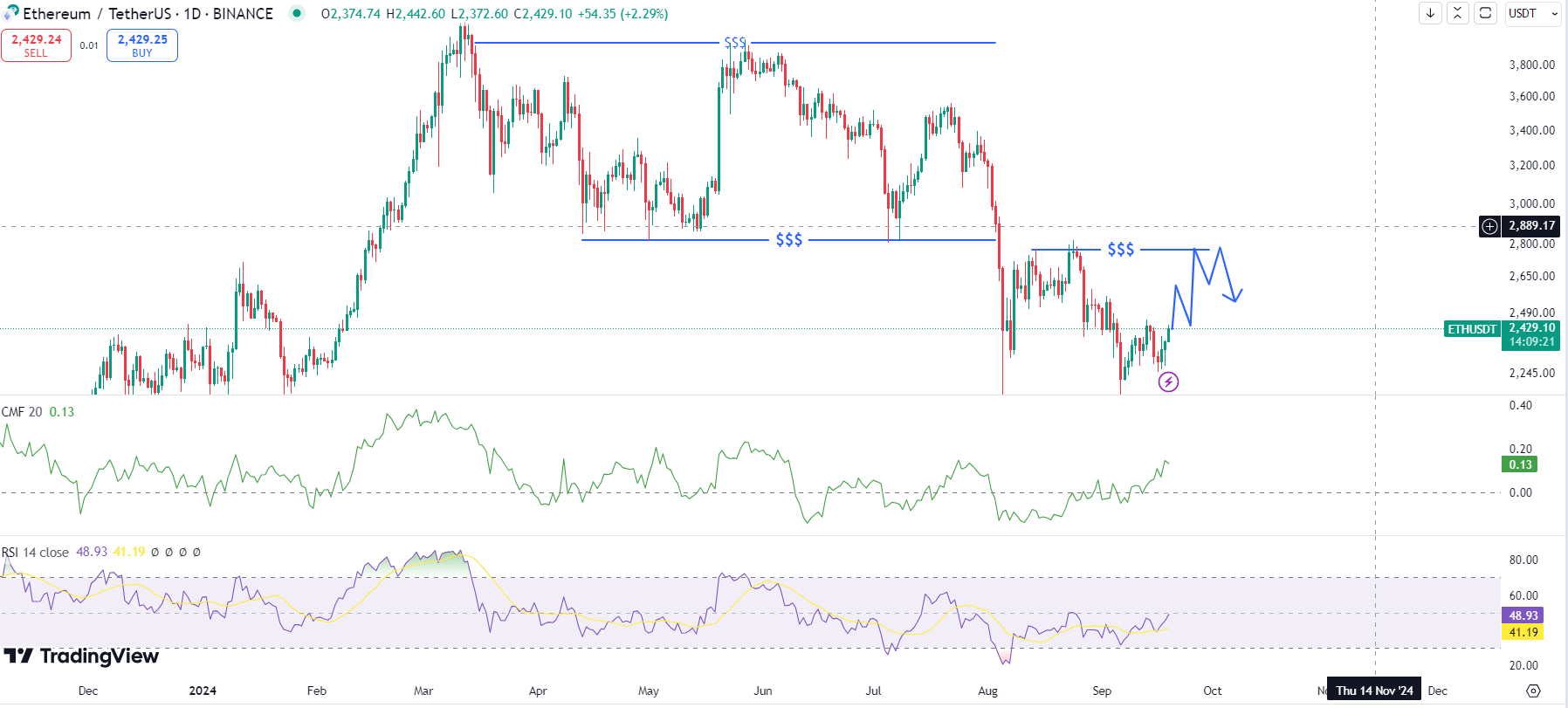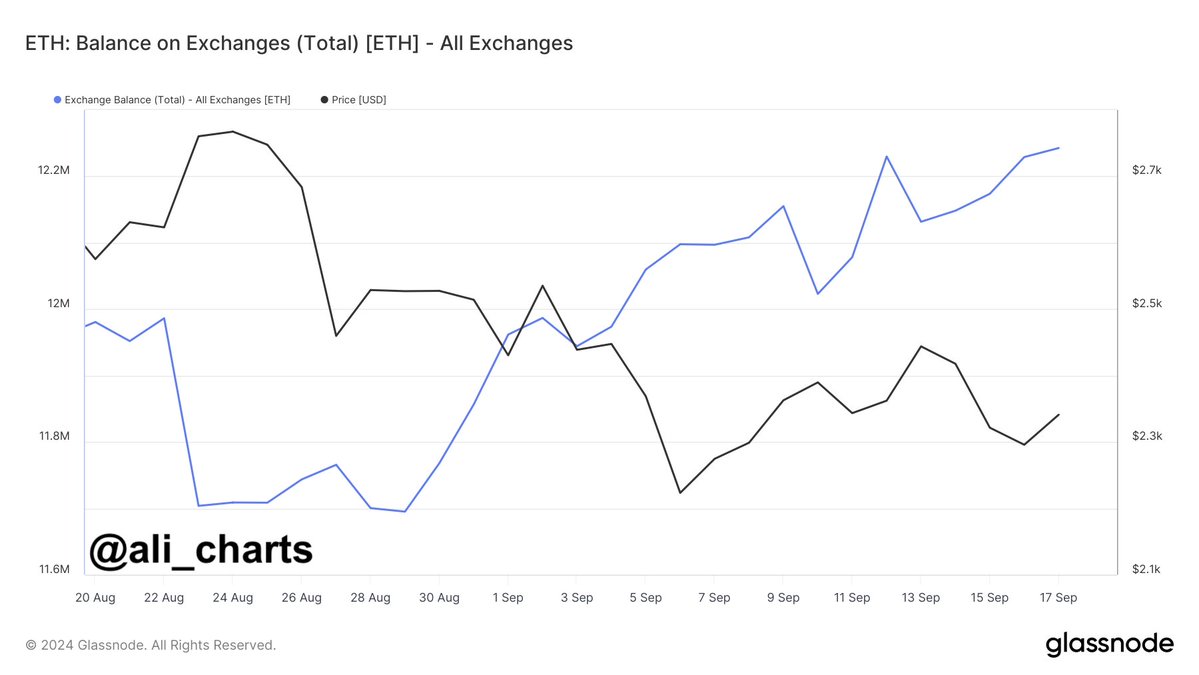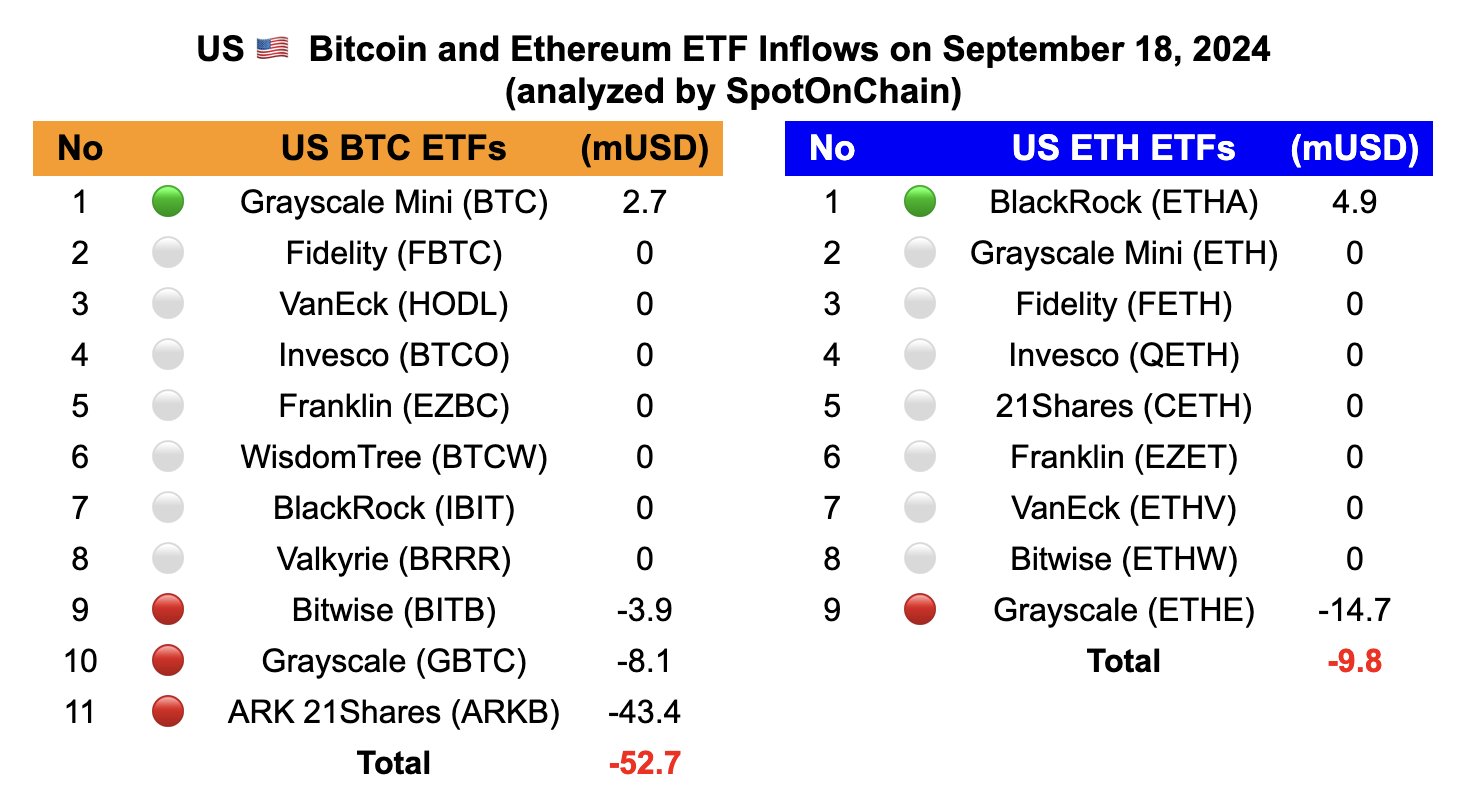- Ethereum’s high order books herald the peak of the rally.
- ETH may be in a bear market, but let’s take a look.
Ethereum [ETH]the largest altcoin, continues to attract attention due to its scalability and widespread use in the blockchain space.
However, Ethereum has been underperforming at higher timeframes for over five months, raising questions about whether the crypto market is still in a bullish phase.
On the one-day timeframe, ETH analysis shows that the combined books for spot order book depth peaked in May.
This measure, which reflects the highs in passive limit orders (bid and ask prices), often signals the end of a rally followed by a bearish trend.


Source: Hyblock Capital
Historical data supports this, showing that ETH may have peaked during the bull run that ended in May as the market is in a consolidation phase.
Since then, ETH has been moving sideways, with no clear direction. But does this indicate a bear market?
Is ETH in a bear market?
Looking at ETH’s price action suggests the possibility of a bear market. The ETH/USDT pair has been on a downward trend since early June and fell below its range on the daily time frame during the market crash on August 5.
Since then, the sector has struggled to recover, signaling the potential for a bear market. However, ETH’s price candles are currently green, indicating a possible recovery towards $3000 after the aggressive sell-off.


Source: TradingView
The price may hover around the $3,000 level. If ETH breaks and stays above $3,000, there could be a potential rally. But if it fails and falls back below that level, the bear market will likely be confirmed.
In support of this, the Chaikin Money Flow and the Relative Strength Index (RSI) are both trending positively, indicating bullish momentum until ETH reaches the $3,000 zone.
Balance on all exchanges
Furthermore, a deeper look at ETH’s balance on the exchanges raises further concerns about a potential bear market.
More than 547,600 ETH, worth over $1.5 billion at the time of writing, has been transferred to exchanges in the past three weeks.
This indicates that traders may be taking profits or cutting their losses, both of which are bearish indicators.


Source: Glassnode
When traders move large amounts of ETH to exchanges, it usually signals an intention to sell, which could contribute to downward price pressure.
The outflow of BTC and ETH ETF continues
Moreover, the outflows from Ethereum and Bitcoin ETF also indicate a bearish trend. Net flows for Ethereum ETFs turned negative, with outflows of $9.8 million from September 18, 2024.
Meanwhile, Bitcoin saw outflows of $52.7 million, further reinforcing concerns of a broader market downturn. Ethereum ETFs have experienced continued outflows, and Bitcoin ETFs have turned negative after four days of inflows.


Source: SpotOnChain
Read Ethereum’s [ETH] Price forecast 2024–2025
This behavior, especially during key market phases, signals possible bearish sentiment or consolidation.
While it’s still unclear whether we’re officially in a bear market, these factors suggest that Ethereum’s price could struggle to move higher in the near term unless market conditions change dramatically.








